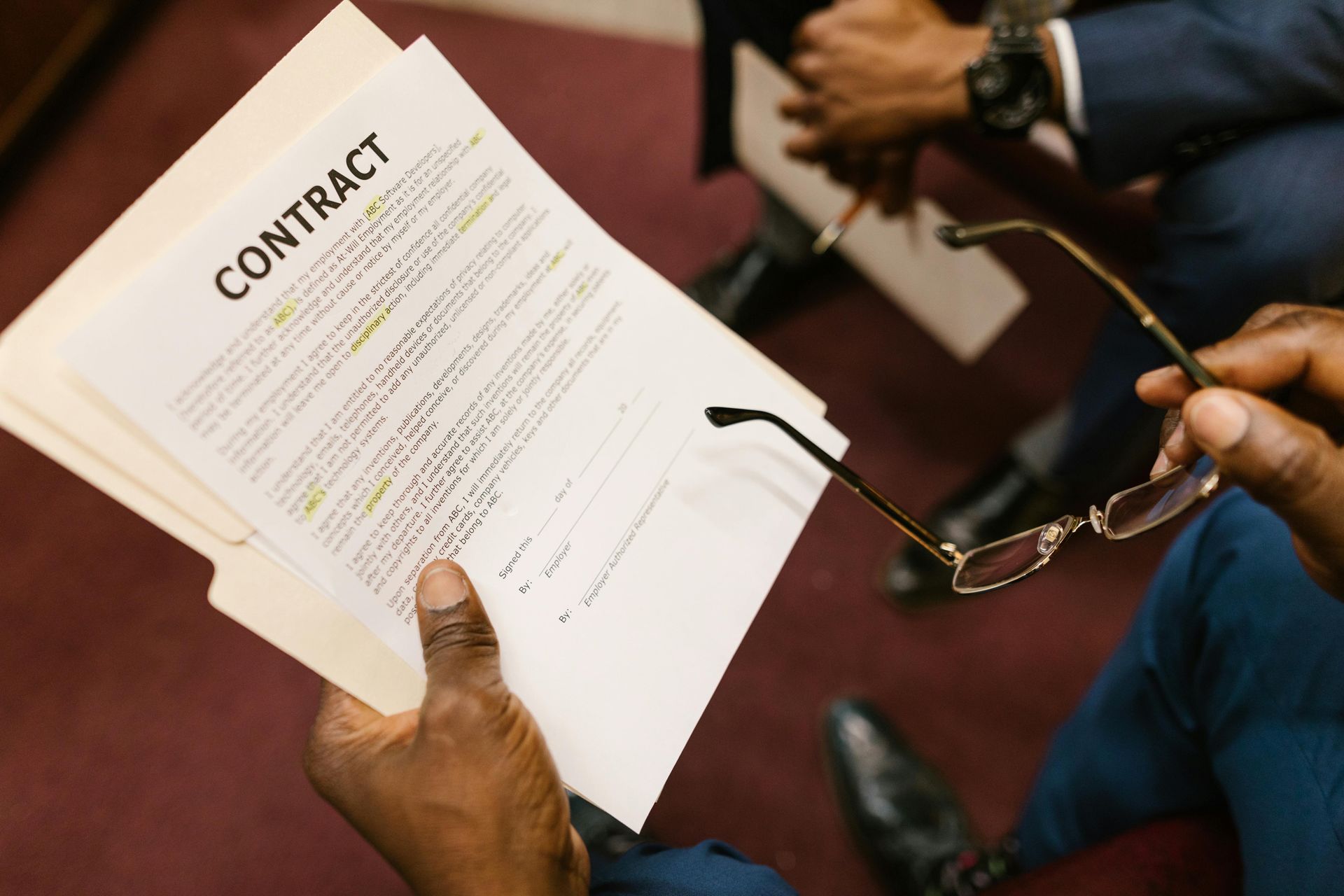Unfair Record Deals: How Established Artists Can Negotiate Better Terms or Fight Legacy Contracts
Before you can take action, you need to identify the problematic clauses in your contract.

Unfair Record Deals: How Established Artists Can Negotiate Better Terms or Fight Legacy Contracts
For decades, record labels have been notorious for signing artists to contracts that heavily favor the label, often leaving musicians struggling to regain control of their work and earnings. Even established artists who have spent years in the industry can find themselves locked into unfavorable deals that limit their creative and financial freedom. Whether you're looking to renegotiate your current contract or fight against an unfair legacy agreement, understanding your legal options is essential.
Recognizing Unfair Terms in Your Record Deal
Before you can take action, you need to identify the problematic clauses in your contract. Common unfair terms include:
- Low Royalty Rates – Many older contracts include royalty rates as low as 10-15% of net revenue, far below industry standards today.
- Perpetual or Long-Term Rights – Some deals lock artists into agreements where the label retains ownership of master recordings indefinitely.
- 360 Deals – These agreements allow labels to take a percentage of revenue from live performances, merchandise, endorsements, and other income streams, often without significant contribution.
- Unclear or Manipulated Accounting Practices – Labels may use opaque accounting methods to reduce reported earnings, resulting in lower payouts to artists.
- Restrictions on Reclaiming Master Rights – Many contracts lack clear terms on when and how an artist can regain control over their masters, even after decades of success.
Strategies for Renegotiating Your Record Deal
If you're still under contract but believe your terms are unfair, here are steps to negotiate better terms:
- Leverage Your Success – If you’ve achieved significant success since signing your contract, use your track record as bargaining power. Labels are more likely to renegotiate with profitable artists.
- Audit Your Royalties – Hire a forensic accountant or entertainment lawyer to audit royalty payments and uncover potential discrepancies in what you are owed.
- Request Ownership Reversion – Negotiate terms that allow you to regain control of your masters after a certain period or based on a sales milestone.
- Negotiate Higher Royalty Rates – Advocate for modernized royalty structures that align with current industry standards, particularly for digital and streaming revenues.
- Reduce or Remove 360 Clauses – If your label isn’t actively contributing to areas like merchandising or touring, push to limit their financial claims in these areas.
- Seek Favorable Exit Terms – If your label isn’t adding value to your career, negotiate buyout clauses or contract termination options to regain control.
Fighting Legacy Record Contracts
Many veteran artists find themselves bound by deals they signed decades ago, often unaware of how the terms would impact them in the streaming era. Here’s how to fight back:
- Explore Contract Reformation – If a contract is deemed excessively unfair, courts may allow for modifications or renegotiations.
- Utilize the Copyright Act’s Termination Rights – Under U.S. law, artists may reclaim their master rights after 35 years for works created post-1978, or after 56 years for pre-1978 recordings.
- Challenge Unfair Accounting Practices – Many artists have successfully sued labels for unpaid or miscalculated royalties, forcing labels to provide proper compensation.
- Seek Class-Action Lawsuits – If other artists are facing similar issues with the same label, collective legal action may provide greater leverage.
- Leverage Public & Industry Pressure – Many artists have successfully renegotiated or won back rights by making their fight public, rallying fan support, and using media exposure to push labels into fairer terms.
The Role of Independent Labels and Self-Releasing
If renegotiating or escaping a bad contract isn’t possible, consider alternative routes:
- Self-Releasing & Independent Distribution – Platforms like TuneCore, DistroKid, and UnitedMasters allow artists to distribute music without label involvement.
- Partnering with Fair-Trade Labels – Some independent labels offer fairer contracts with revenue-sharing models that prioritize artist earnings.
- Crowdfunding & Direct-to-Fan Sales – Artists can use platforms like Patreon, Kickstarter, and Bandcamp to sell music and merchandise directly to fans without label interference.
Final Thoughts
As an established artist, you have more power than you think when it comes to challenging or renegotiating unfair contracts. Whether through legal action, strategic negotiation, or independence from traditional labels, there are multiple paths to reclaiming your rights and maximizing your earnings. The music business continues to evolve, and artists must take proactive steps to ensure they remain in control of their creative and financial future.
